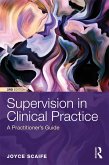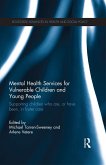38,95 €
38,95 €
inkl. MwSt.
Sofort per Download lieferbar

19 °P sammeln
38,95 €
Als Download kaufen

38,95 €
inkl. MwSt.
Sofort per Download lieferbar

19 °P sammeln
Jetzt verschenken
Alle Infos zum eBook verschenken
38,95 €
inkl. MwSt.
Sofort per Download lieferbar
Alle Infos zum eBook verschenken

19 °P sammeln
- Format: PDF
- Merkliste
- Auf die Merkliste
- Bewerten Bewerten
- Teilen
- Produkt teilen
- Produkterinnerung
- Produkterinnerung

Bitte loggen Sie sich zunächst in Ihr Kundenkonto ein oder registrieren Sie sich bei
bücher.de, um das eBook-Abo tolino select nutzen zu können.
Hier können Sie sich einloggen
Hier können Sie sich einloggen
Sie sind bereits eingeloggt. Klicken Sie auf 2. tolino select Abo, um fortzufahren.

Bitte loggen Sie sich zunächst in Ihr Kundenkonto ein oder registrieren Sie sich bei bücher.de, um das eBook-Abo tolino select nutzen zu können.
Depression provides a valuable and accessible resource for students, practitioners, and researchers seeking an up-to-date overview and summary of research-based information about depression.
- Geräte: PC
- mit Kopierschutz
- eBook Hilfe
- Größe: 1.97MB
Andere Kunden interessierten sich auch für
![Personality Disorders (eBook, PDF) Personality Disorders (eBook, PDF)]() Paul M. G. EmmelkampPersonality Disorders (eBook, PDF)37,95 €
Paul M. G. EmmelkampPersonality Disorders (eBook, PDF)37,95 €![Supervision in Clinical Practice (eBook, PDF) Supervision in Clinical Practice (eBook, PDF)]() Joyce ScaifeSupervision in Clinical Practice (eBook, PDF)49,95 €
Joyce ScaifeSupervision in Clinical Practice (eBook, PDF)49,95 €![Mental Health Services for Vulnerable Children and Young People (eBook, PDF) Mental Health Services for Vulnerable Children and Young People (eBook, PDF)]() Mental Health Services for Vulnerable Children and Young People (eBook, PDF)52,95 €
Mental Health Services for Vulnerable Children and Young People (eBook, PDF)52,95 €![Assessing Risk (eBook, PDF) Assessing Risk (eBook, PDF)]() Stephen BlumenthalAssessing Risk (eBook, PDF)38,95 €
Stephen BlumenthalAssessing Risk (eBook, PDF)38,95 €![Serving Military and Veteran Families (eBook, PDF) Serving Military and Veteran Families (eBook, PDF)]() Karen Rose BlaisureServing Military and Veteran Families (eBook, PDF)57,95 €
Karen Rose BlaisureServing Military and Veteran Families (eBook, PDF)57,95 €![Managing Hot Flushes and Night Sweats (eBook, PDF) Managing Hot Flushes and Night Sweats (eBook, PDF)]() Myra HunterManaging Hot Flushes and Night Sweats (eBook, PDF)22,95 €
Myra HunterManaging Hot Flushes and Night Sweats (eBook, PDF)22,95 €![Depression (eBook, ePUB) Depression (eBook, ePUB)]() Constance HammenDepression (eBook, ePUB)38,95 €
Constance HammenDepression (eBook, ePUB)38,95 €-
-
-
Depression provides a valuable and accessible resource for students, practitioners, and researchers seeking an up-to-date overview and summary of research-based information about depression.
Hinweis: Dieser Artikel kann nur an eine deutsche Lieferadresse ausgeliefert werden.
Dieser Download kann aus rechtlichen Gründen nur mit Rechnungsadresse in A, B, BG, CY, CZ, D, DK, EW, E, FIN, F, GR, HR, H, IRL, I, LT, L, LR, M, NL, PL, P, R, S, SLO, SK ausgeliefert werden.
Hinweis: Dieser Artikel kann nur an eine deutsche Lieferadresse ausgeliefert werden.
Produktdetails
- Produktdetails
- Verlag: Taylor & Francis eBooks
- Seitenzahl: 292
- Erscheinungstermin: 12. Februar 2018
- Englisch
- ISBN-13: 9781134870899
- Artikelnr.: 53237024
- Verlag: Taylor & Francis eBooks
- Seitenzahl: 292
- Erscheinungstermin: 12. Februar 2018
- Englisch
- ISBN-13: 9781134870899
- Artikelnr.: 53237024
- Herstellerkennzeichnung Die Herstellerinformationen sind derzeit nicht verfügbar.
Constance Hammen is a professor and clinical psychologist at UCLA, and a cognitive-behavioural therapist.
Edward Watkins is a chartered clinical psychologist at the Mood Disorders Centre, University of Exeter.
Edward Watkins is a chartered clinical psychologist at the Mood Disorders Centre, University of Exeter.
Table of Contents
Series preface
List of tables and figures
1. Defining and diagnosing depression
Phenomenology of depressive experiences
Diagnosis of depression
Challenges and alternatives to the diagnostic approach
Summary
References
2. Course and consequences of depression
Course of unipolar major depressive disorder
Nature and course of depression in children, adolescents, and older adults
Impaired functioning and consequences of depression
Summary
References
3. Who is affected by depression?
Prevalence of depression
Sociodemographic correlates of depression
Age and depression
Gender differences in depression
Summary
References
4. Biological aspects of depression
Conceptual issues in the biology of depressive disorders
Genetic research in depression
Brain and neuroendocrine functioning and depression
The role of female hormones in depression
Summary
References
5. Cognitive and life stress approaches to depression
Cognitive and information-processing models of depression
Evaluating cognitive vulnerability models
Stressful events and circumstances and their role in depression
Summary
References
6. Social aspects of depression
Depression in the family context
Social behaviours of depressed persons
Summary
References
7. Biological treatment of depression
Antidepressant medications
Nonpharmacological biological treatments
Summary
References
8. Psychological treatments
Psychotherapy approaches to depression
Evaluating the outcome of psychological treatments
Relapse prevention and residual depression
Challenges for psychological treatments
Improving the accessibility and availability of psychological treatments
Prevention of depression
Treating children and adolescents
Summary
References
Series preface
List of tables and figures
1. Defining and diagnosing depression
Phenomenology of depressive experiences
Diagnosis of depression
Challenges and alternatives to the diagnostic approach
Summary
References
2. Course and consequences of depression
Course of unipolar major depressive disorder
Nature and course of depression in children, adolescents, and older adults
Impaired functioning and consequences of depression
Summary
References
3. Who is affected by depression?
Prevalence of depression
Sociodemographic correlates of depression
Age and depression
Gender differences in depression
Summary
References
4. Biological aspects of depression
Conceptual issues in the biology of depressive disorders
Genetic research in depression
Brain and neuroendocrine functioning and depression
The role of female hormones in depression
Summary
References
5. Cognitive and life stress approaches to depression
Cognitive and information-processing models of depression
Evaluating cognitive vulnerability models
Stressful events and circumstances and their role in depression
Summary
References
6. Social aspects of depression
Depression in the family context
Social behaviours of depressed persons
Summary
References
7. Biological treatment of depression
Antidepressant medications
Nonpharmacological biological treatments
Summary
References
8. Psychological treatments
Psychotherapy approaches to depression
Evaluating the outcome of psychological treatments
Relapse prevention and residual depression
Challenges for psychological treatments
Improving the accessibility and availability of psychological treatments
Prevention of depression
Treating children and adolescents
Summary
References
Table of Contents
Series preface
List of tables and figures
1. Defining and diagnosing depression
Phenomenology of depressive experiences
Diagnosis of depression
Challenges and alternatives to the diagnostic approach
Summary
References
2. Course and consequences of depression
Course of unipolar major depressive disorder
Nature and course of depression in children, adolescents, and older adults
Impaired functioning and consequences of depression
Summary
References
3. Who is affected by depression?
Prevalence of depression
Sociodemographic correlates of depression
Age and depression
Gender differences in depression
Summary
References
4. Biological aspects of depression
Conceptual issues in the biology of depressive disorders
Genetic research in depression
Brain and neuroendocrine functioning and depression
The role of female hormones in depression
Summary
References
5. Cognitive and life stress approaches to depression
Cognitive and information-processing models of depression
Evaluating cognitive vulnerability models
Stressful events and circumstances and their role in depression
Summary
References
6. Social aspects of depression
Depression in the family context
Social behaviours of depressed persons
Summary
References
7. Biological treatment of depression
Antidepressant medications
Nonpharmacological biological treatments
Summary
References
8. Psychological treatments
Psychotherapy approaches to depression
Evaluating the outcome of psychological treatments
Relapse prevention and residual depression
Challenges for psychological treatments
Improving the accessibility and availability of psychological treatments
Prevention of depression
Treating children and adolescents
Summary
References
Series preface
List of tables and figures
1. Defining and diagnosing depression
Phenomenology of depressive experiences
Diagnosis of depression
Challenges and alternatives to the diagnostic approach
Summary
References
2. Course and consequences of depression
Course of unipolar major depressive disorder
Nature and course of depression in children, adolescents, and older adults
Impaired functioning and consequences of depression
Summary
References
3. Who is affected by depression?
Prevalence of depression
Sociodemographic correlates of depression
Age and depression
Gender differences in depression
Summary
References
4. Biological aspects of depression
Conceptual issues in the biology of depressive disorders
Genetic research in depression
Brain and neuroendocrine functioning and depression
The role of female hormones in depression
Summary
References
5. Cognitive and life stress approaches to depression
Cognitive and information-processing models of depression
Evaluating cognitive vulnerability models
Stressful events and circumstances and their role in depression
Summary
References
6. Social aspects of depression
Depression in the family context
Social behaviours of depressed persons
Summary
References
7. Biological treatment of depression
Antidepressant medications
Nonpharmacological biological treatments
Summary
References
8. Psychological treatments
Psychotherapy approaches to depression
Evaluating the outcome of psychological treatments
Relapse prevention and residual depression
Challenges for psychological treatments
Improving the accessibility and availability of psychological treatments
Prevention of depression
Treating children and adolescents
Summary
References







